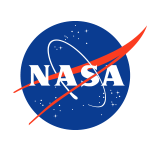Low-T, Low-Q Cryocoolers for Science Instruments
Project Description
The purpose of the planned research is to advance the current space science instruments through the development of light weight and low power cryocoolers. Currently, space science instruments are limited in mission goals due to shortcomings in state-of-the-art coolers. Therefore, the goals of this project are to (a) thoroughly design, theoretically demonstrate, and parametrically study complete single or multi-stage cryocoolers at 35K, 10-6K, and 2K; (b) perform component-level and system-level, two-dimensional and three-dimensional computational fluid dynamics simulations; (c) conduct experimental tests for separate-effects measurements, heat load curve development, loss scaling, tilt sensitivity testing, and space instrument integration testing. The research will take place in three stages. These include a stage for theoretical design and development, computational simulation, and experimental testing. The theoretical design will begin will analyzing the regenerator filler material. The factors influencing the selection include thermo-physical properties, manufacturability, cost, toxicity, and life cycle. The material selection as well as geometrical considerations will be taken into consideration. The next step of the theoretical design will involve the use of industry standard techniques as well as various software to design three single-stage or multi-stage cryocoolers that can achieve 35K, 10-6K, and 2K cold end temperatures at low powers. This analysis will provide insight on the feasibility of the models. The next step is to fully validate the theoretical models using computational simulations in ANSYS FLUENT. The simulations will provide a deeper understanding about the multidimensional flow effects that could have a substantial influence on the designs. After the simulations are completed, a series of experiments will be conducted to test various effects such as heat load curve development, loss scaling, tilt sensitivity, and space instrument integration. These experiments will conducted in our laboratory using low temperature cryocoolers currently available. The impacts and scientific strides resulting from this project would be multifold and will result in innovative advanced space technology for scientific exploration and discovery. Development of low power 35K, 10-6K and 2K cryocoolers is required to cool the next generation of science instruments. 35K coolers are needed for mercury cadmium telluride long wave IR detectors. 10K - 6K coolers are needed for arsenic-doped silicon detectors which operate in the IR spectrum. 2K coolers are needed as the upper stage for lower temperature Adiabatic Demagnetization Refrigeration (ADR) systems for X-ray spectrometers. The comprehensive design, optimization, theoretical characterization, and experimental testing of space science instrument cryocooler would be novel and innovative. Furthermore, not only will this project contribute to the accomplishment of the thermal management needs of NASAs Grand Challenges and build on existing OCT funded projects, but would also result in the advancement of the forthcoming educational and research objectives.
More »Anticipated Benefits
The impacts and scientific strides resulting from this project would be multifold and will result in innovative advanced space technology for scientific exploration and discovery. Development of low power 35K, 10-6K and 2K cryocoolers is required to cool the next generation of science instruments. 35K coolers are needed for mercury cadmium telluride long wave IR detectors. 10K - 6K coolers are needed for arsenic-doped silicon detectors which operate in the IR spectrum. 2K coolers are needed as the upper stage for lower temperature Adiabatic Demagnetization Refrigeration (ADR) systems for X-ray spectrometers. The comprehensive design, optimization, theoretical characterization, and experimental testing of space science instrument cryocooler would be novel and innovative. Furthermore, not only will this project contribute to the accomplishment of the thermal management needs of NASAs Grand Challenges and build on existing OCT funded projects, but would also result in the advancement of the forthcoming educational and research objectives.
More »Primary U.S. Work Locations and Key Partners
| Organizations Performing Work | Role | Type | Location |
|---|---|---|---|
| Georgia Institute of Technology-Main Campus (GA Tech) | Lead Organization | Academia | Atlanta, Georgia |
 Ames Research Center
(ARC)
Ames Research Center
(ARC)
|
Supporting Organization | NASA Center | Moffett Field, California |
Primary U.S. Work Locations
-
Georgia


